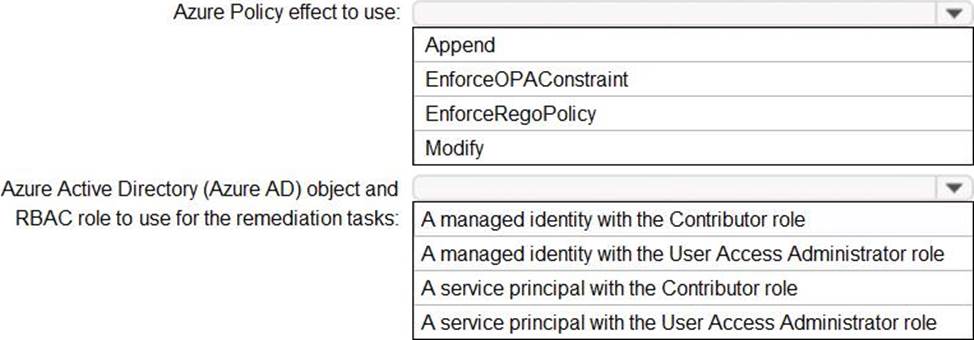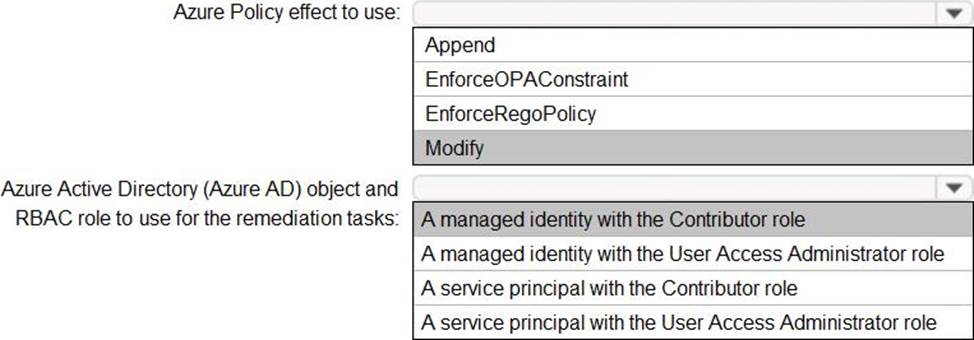What should you include in the design?
HOTSPOT
You need to design an Azure policy that will implement the following functionality:
• For new resources, assign tags and values that match the tags and values of the resource group to which the resources are deployed.
• For existing resources, identify whether the tags and values match the tags and values of the resource group that contains the resources.
• For any non-compliant resources, trigger auto-generated remediation tasks to create missing tags and values.
The solution must use the principle of least privilege.
What should you include in the design? To answer, select the appropriate options in the answer area. NOTE: Each correct selection is worth one point.

Answer: 
Explanation:
Graphical user interface, text, application, chat or text message
Description automatically generated
Box 1: Modify
Modify is used to add, update, or remove properties or tags on a resource during creation or update. A common example is updating tags on resources such as costCenter. Existing non-compliant resources can be remediated with a remediation task. A single Modify rule can have any number of operations.
Box 2: A managed identity with the Contributor role
✑ Managed identity
How remediation security works: When Azure Policy runs the template in the deployIfNotExists policy definition, it does so using a managed identity. Azure Policy creates a managed identity for each assignment, but must have details about what roles to grant the managed identity.
✑ Contributor role
The Contributor role grants the required access to apply tags to any entity.
Latest AZ-305 Dumps Valid Version with 78 Q&As
Latest And Valid Q&A | Instant Download | Once Fail, Full Refund

